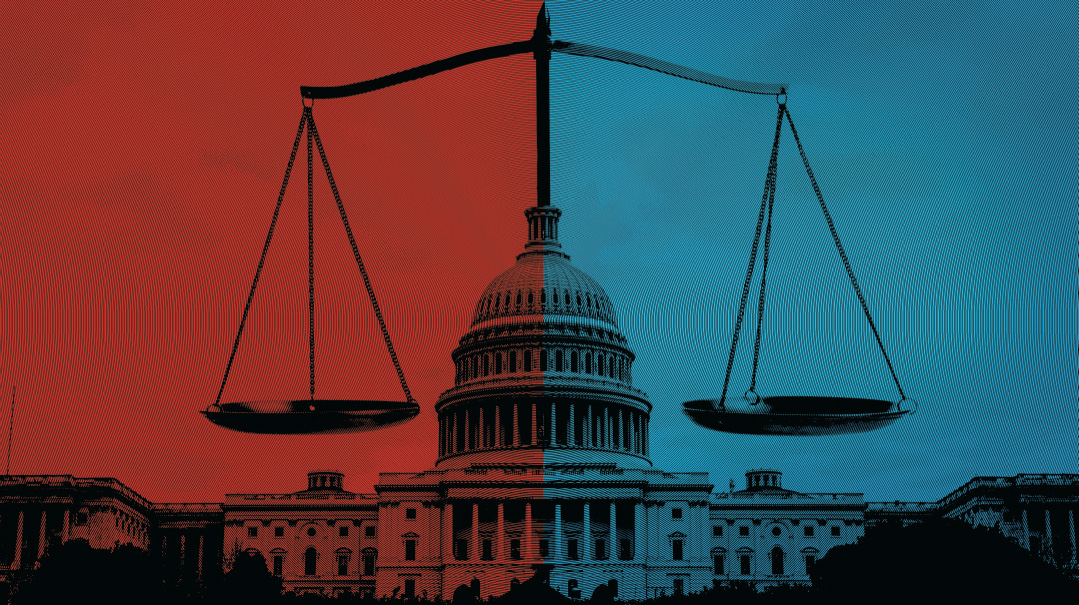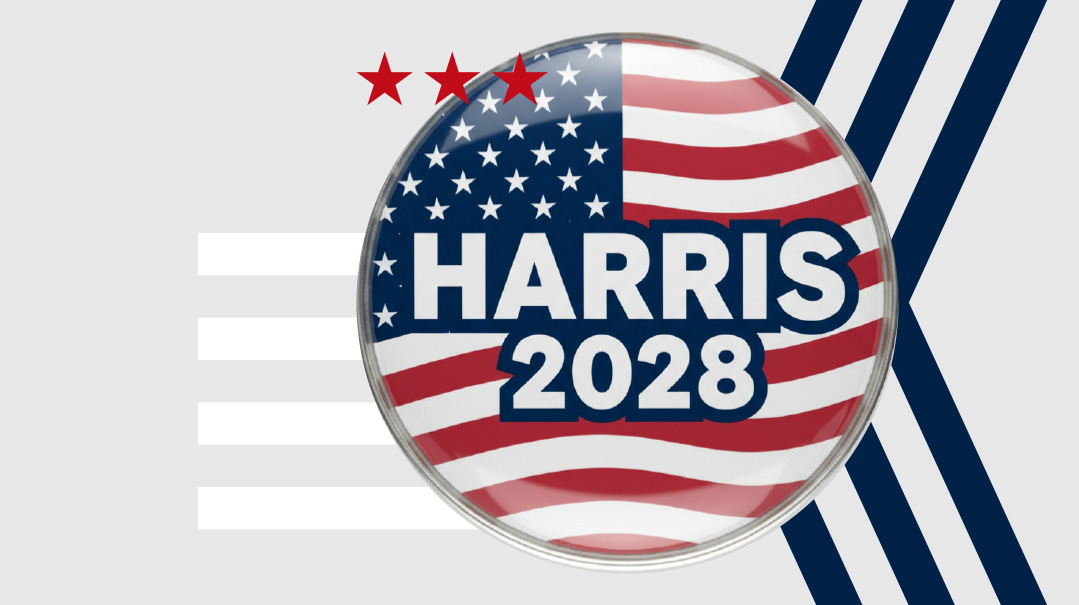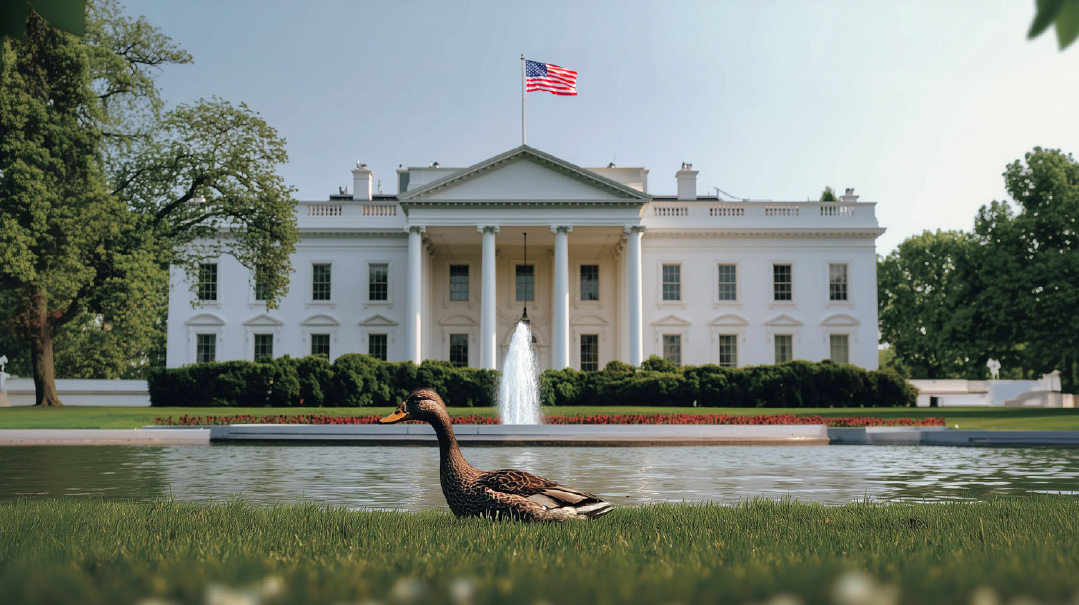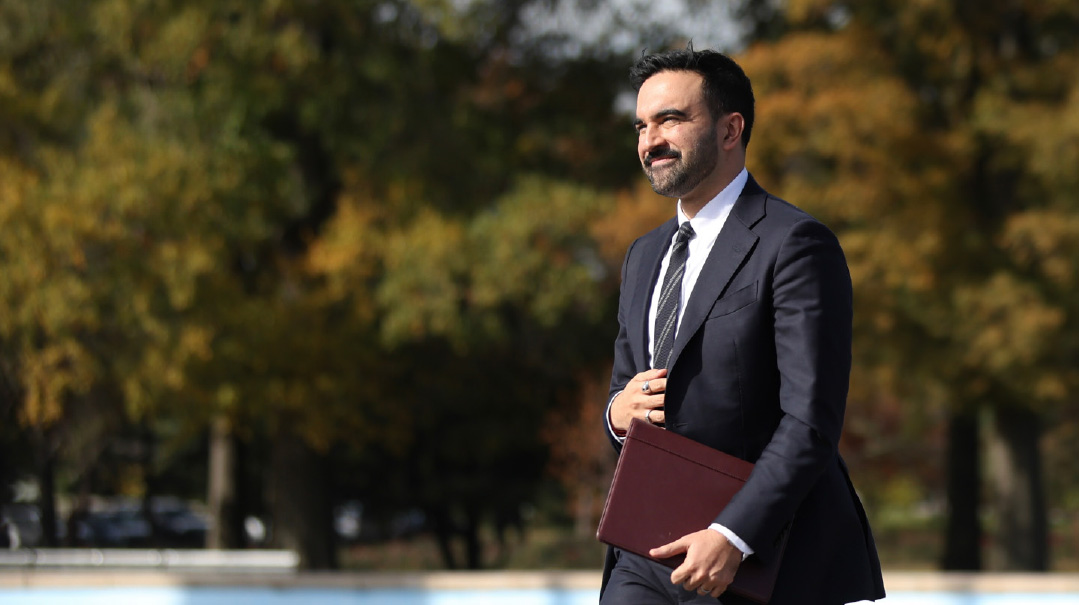Tipping the Balance

November swing states; here's what to watch

Less than six months remain before the 2024 general elections, and the media is focused on who will win the White House. That vote is of historical importance, but other critical decisions are also on the ballot.
Arguably as important as the question of who will be president is: Who controls Congress? Democrats hold the Senate by a razor-thin two-seat majority. The Republicans control the House by a 217–213 margin; if the five vacant seats swing to Democrats, it will flip Congress. Whichever party holds power in Congress can help or hurt the sitting president. Let’s dive into the most critical races that will determine the direction of the 119th Congress and the first two years of the next presidential term.
US House of Representatives
The nonpartisan Cook Political Report has identified 22 “toss up” seats in November — 11 Republican and 11 Democratic.
Space won’t permit detailed analyses of 22 individual races. In brief, many of these are “crossover” seats: the district voted one way for Congress and the other way for president in 2020. Republicans won in districts carried by Biden, and Democrats were elected in districts won by Trump.
How these districts will go in the 2024 election is hard to predict. On one hand, voters have already demonstrated their willingness to split their ticket, which might favor the incumbents. On the other hand, a red or blue wave could sweep these outliers out of office, regardless of what occurred two years ago. The critical question is what emotions will drive voter turnout. Will more Republicans want to express their anger against Biden on the state of the economy and illegal immigration? Or will more Democrats want to make sure Trump doesn’t get a second chance?
The frum community will be watching a trifecta of GOP House seats in New York that have been identified as toss-ups: the 19th District, held by Marc Molinaro (Catskills); the 17th District, held by Mike Lawler (Rockland County); and the 4th District, held by Anthony D’Esposito (Five Towns). Biden won overwhelmingly in their districts in 2020. Given the tight margin in the House, frum community voter turnout could easily decide which party controls Congress.
I believe these New York Republicans will win their races, due to two factors: Each has built strong name ID in his district, bolstering the advantage of their incumbency. And they are benefiting from some uniquely unpopular Democratic policies in New York, such as bail reform and immigration reform, which are easy to run against.
I would also bet on these issues tipping control of the House to Republicans. The intense voter discontent against Democratic support for these progressive positions should blunt any serious blue wave that could sweep Republicans out of office.
US Senate
The situation in the Senate is more volatile. Control can be decided by far fewer seats than in the House. Because foreign policy is led more by the Senate than the House, certain seats will make the difference in how Israel is treated in the next term.
West Virginia: Currently being held by retiring Democrat Joe Manchin, this seat is extremely likely to flip. Republican governor Jim Justice is running for this open seat in a state that will overwhelmingly vote for Trump and most likely sweep him into office. I would bet on the GOP in this one.
Ohio and Montana: I am lumping these two together because we have two popular Democratic incumbents in Sherrod Brown (OH) and Jon Tester (MT) running for reelection in states likely to go to Trump. How can they possibly win? Simple. They’ve done it before and are banking on incumbency and name recognition to do it again. The sizable Jewish community in Ohio has a lot to think about in this election. These races are not easy to predict, but I wouldn’t bet against either of these experienced campaigners and I believe they both win reelection.
Nevada, Pennsylvania, Wisconsin: These swing states voted for Biden in 2020 and feature Democratic incumbents running for reelection: Tammy Baldwin (WI), Bob Casey (PA), and Jacky Rosen (NV). These are too hard to predict. Yes, they all have the advantage of incumbency, but these states could easily flip to Trump and upend their election. These races could go either way.
Arizona, Michigan, Maryland: These are open seats held by Democrats who aren’t seeking reelection. (Technically, Arizona’s Kirsten Synema is an independent who caucuses with Dems.) These races are all hard to call, but here’s how I would game them.
I believe Arizona remains Democratic. Polling shows Representative Ruben Gallego (D) ahead of Republican Kari Lake. Lake lost the gubernatorial race, and I believe her negatives are going to be hard to overcome in what will be a tight race.
In Michigan, we need to wait for more polling and see how the presidential race shapes up. Two members of Congress are running against each other, and it’s simply too early to make a call.
I believe Maryland could be a major upset for the Republicans. While it is a deep-blue state, popular former GOP governor Larry Hogan is running against Democratic Prince George County executive Angela Alsobrooks. Hogan’s name ID and popularity could easily win him this race.
These are the races in the House and Senate to watch. Most of these are in swing states that are home to significant Jewish populations. Disagree with me? Make a definitive impact in the race in your home state. As always, don’t just be an observer — be an active civic participant!
A New Political Party
Republican, Democratic, independent, conservative, liberal — labels that define policy direction and political power.
Last week we saw a new label emerge: the Noise Party. This new grouping took over a House Oversight Committee hearing last week, when Alexandria Ocasio Cortez (D–NY) and Marjorie Taylor Greene (R–GA) began trading barbs and name-calling.
Can you blame them? This new party is not based on accomplishing things but on driving social media traffic. With a collective 16 million followers on X, and millions of others on other social media platforms, these two party leaders need noise to feed their constituencies. Some may see divisiveness at such a combative hearing, but I see unity. These two need each other. They are united not in seeking results but in seeking attention.
(Originally featured in Mishpacha, Issue 1013)
Oops! We could not locate your form.







